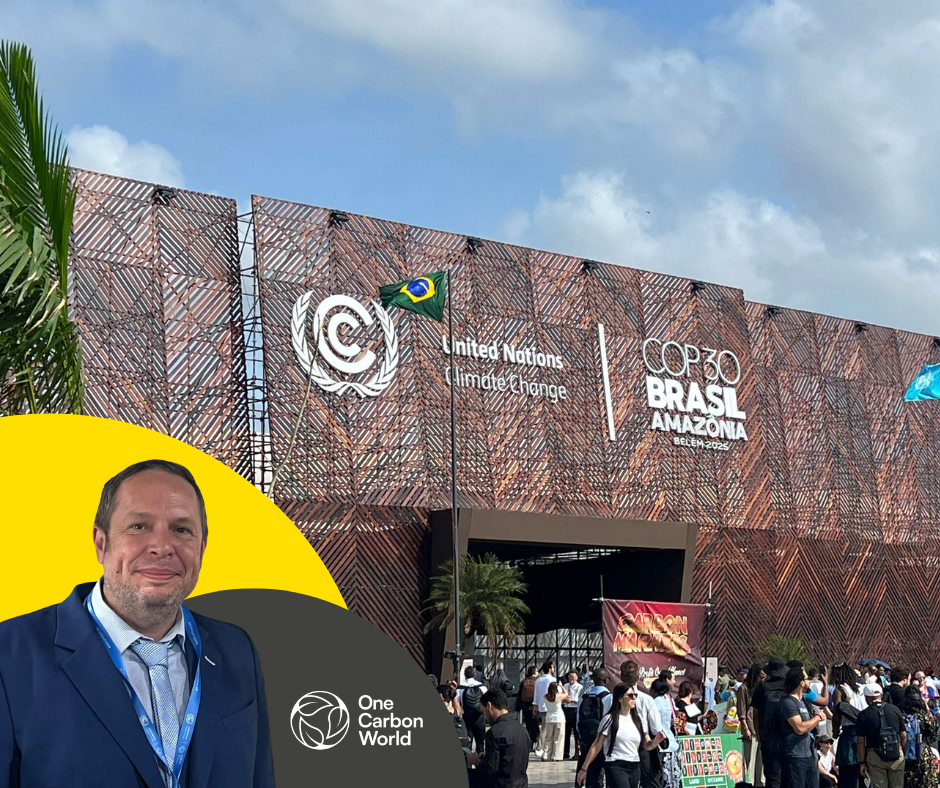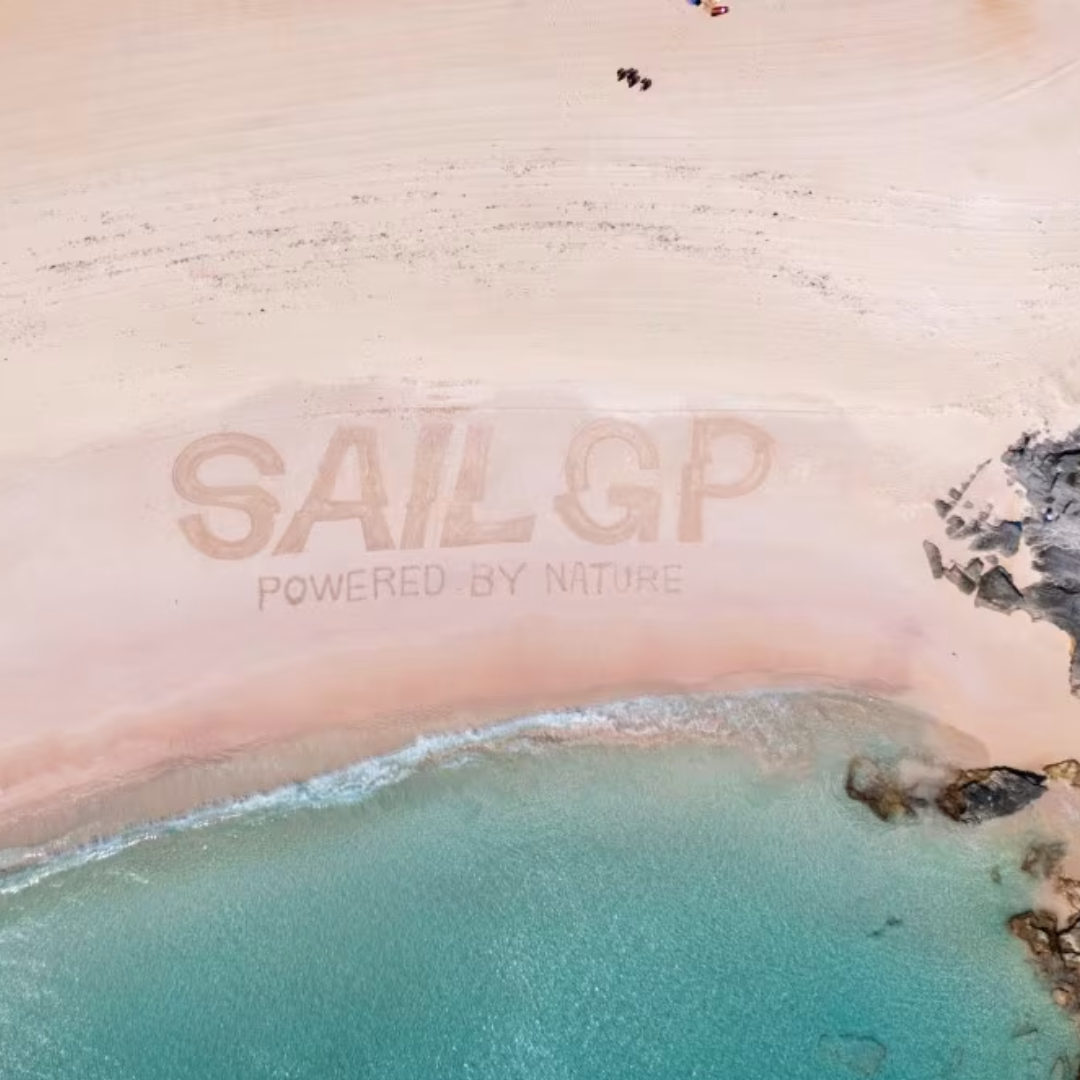Day 1 at COP30: Forests, Adaptation, and the People–Water Connection
By Andrew Bowen, CEO of One Carbon World
 Watch Video
Watch Video
My first day at COP30 in Belém revealed a noticeable shift in energy, less rhetoric, more resolve. After years of talking about implementation, the conversation is finally turning to how we deliver. Across every pavilion, the focus was on translating ambition into measurable progress and aligning climate finance, policy, and local action to achieve lasting impact.
One key development at this COP is the effort to map global climate initiatives into focused action groups, with the aim of accelerating and funding projects that can deliver tangible results. The details are still emerging, but the intent is rather promising: a shift from discussion toward coordination and financial support for proven solutions.
Among the many sessions today, one that stood out was Forests Beyond Carbon: The People–Water Nexus for a Cooler Planet. It helped reframe from the way we think about forests: not simply as carbon stores, but as vital water infrastructure underpinning climate stability and human wellbeing.
Speakers from across the tropical basins in Africa, South America, and Southeast Asia shared compelling field experiences. Their work demonstrates that effective forest–water governance doesn’t just protect ecosystems; it builds resilience, safeguards livelihoods, and promotes equity.
A few messages resonated strongly:
- Forests regulate rainfall and protect watersheds, making them essential for water security and temperature moderation.
- Communities are central: local knowledge and inclusion are key to any lasting climate solution.
- Integrating hydrology, forest protection, and livelihoods into national climate strategies delivers multiple benefits for adaptation, biodiversity, and socioeconomic resilience.
The overarching insight was simple: forests are vital water infrastructure. Embedding this understanding into climate policy will be essential for both environmental and community resilience.
The tone throughout the day was notably pragmatic and hopeful, but that is certainly not enough. Scientists, policymakers, and private sector leaders are converging around implementation partnerships that link verified carbon removals with broader ecosystem and social benefits. This whole-system perspective (connecting forests, water, and people) is increasingly seen as the path forward for effective climate action. In line with this, at the UK Pavilion, a session on NDC 3.0 underscored the urgent need for climate finance, particularly among African nations, to enable delivery on their commitments.
Throughout the day, I connected with several African project leads keen to align with our verification and community impact model. The appetite for credible, high-impact partnerships is clear, and it’s encouraging to see growing recognition of the value that verified carbon initiatives can bring to both people and ecosystems.
Day 1 at COP30 closed on a note of cautious, practical optimism. The discussions are moving steadily toward delivery and accountability, and it’s clear that collaboration, evidence, and local inclusion will define the next chapter of global climate action.

Our Projects

Turning the Tides: How Sail GP is Redefining Climate Leadership in Sports
.png)
Farming for the Future: Sasini's Journey to Net Zero






